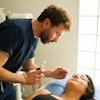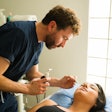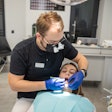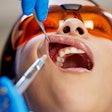While only 1.5% of dentists who contribute to research in dental anesthesiology are trained dental anesthesiologists (DAs), they are responsible for 10% of the publications, according to a new study in Anesthesia Progress that sought to determine how actively DAs contribute to research and new knowledge in the field of dental anesthesiology (Spring 2011, Vol. 58:1, pp. 14-21).
DAs are required by ADA guidelines to complete two years of hospital-based general anesthesia residency. In 2007, the Commission on Dental Accreditation began formally accrediting such two-year programs and is considering new standards that would require three years of residency. Despite these requirements, the ADA does not formally recognize dental anesthesiology as a specialty, creating an obstacle to active research in the field, the American Dental Society of Anesthesiology -- publishers of Anesthesia Progress -- stated in a news release.
To measure something as subjective as published research, the authors -- who included Steven Ganzberg, DMD, a professor of clinical anesthesiology at Ohio State University College of Dentistry -- used the Hirsch index, which applies a measure of productivity and impact to scientific research through a formula that includes a professional's number of published papers and the number of citations of those papers elsewhere.
They found that research by DAs has a similar impact to research by professionals in the six clinically oriented specialties of the ADA. The authors therefore concluded that DAs actively contribute to research and acquisition of new knowledge in their field. This study determined that research by DAs was "not different" and "noninferior" to that by other dental specialists. This shows that the six currently recognized clinically oriented dental specialties do not provide a significantly different level of research than DAs.
"Dentist anesthesiologists actively contribute to the research in anesthesiology for dentistry and thus actively contribute to new knowledge in the field," the authors concluded.



















